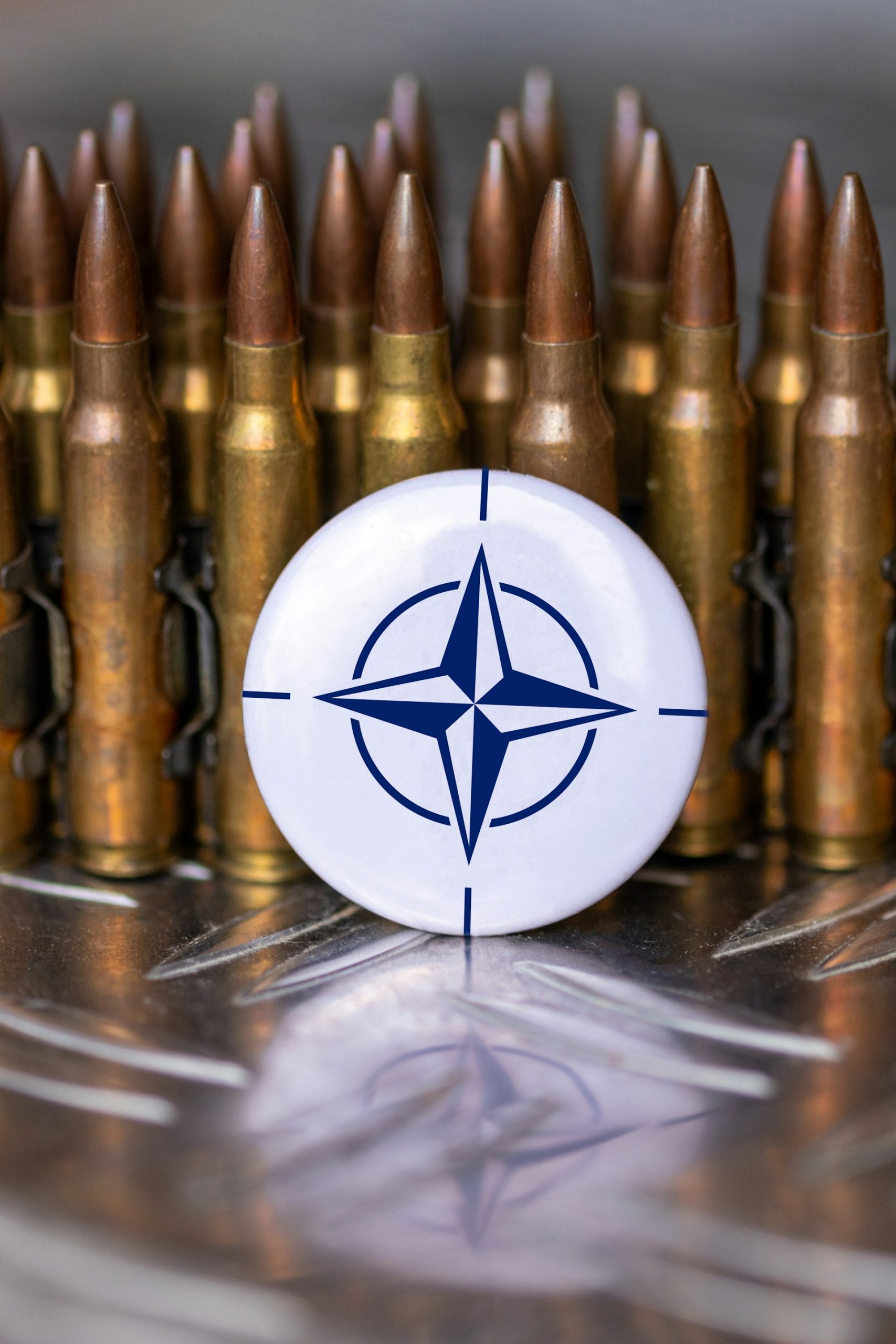
Comment writer Christopher Crowson reflects on the outcome of the NATO summit in July, and the consequences for Ukraine and the international order
As the war in Ukraine transforms more and more into a war of attrition, NATO revealed at its latest conference – one marking the organisation’s 75th anniversary – that it is prepared to do the same, and rightfully so.
From the 9th to the 11th of July, NATO members, Ukraine’s President Volodymyr Zelenskyy, alongside guests from other cordial nations, gathered in the American capital for the 2024 Washington summit. The Alliance, founded in 1949 to deter Russian expansion, celebrated its 75th anniversary in an appropriate manner; discussing how to counter Russian aggression in Ukraine.
At the summit, NATO leaders reaffirmed their ‘unwavering solidarity with the people of Ukraine in the heroic defence of their nation, their land, and our shared values’, agreed to ‘bolster [their] long-term support to Ukraine’ and made it clear that Europe must, paradoxically, be ready to face another decade of war if they want to see Neville Chamberlain’s long awaited ‘peace for our time.’
Jens Stoltenburg, secretary general of NATO, is well aware of the contradictory nature of this final point, stating ‘the paradox is that now President Putin believes that he can wait us out. So therefore, the war continues.’ Amidst the chaos of the contemporary era, in which Ukraine’s sovereignty and the collapse of the international order is at risk, NATO is left with no other viable option.
Since the beginning of Putin’s invasion of Ukraine’s sovereign territory, NATO has been, to put it lightly, caught between a rock and hard place. Either poke the Russian bear too hard (and commit their own troops to the fight), or adopt a laissez-faire approach, allowing Putin to realise his personal ambition of correcting ‘the biggest geopolitical catastrophe’ of the 20th century; the breakup of the Soviet Union and the subsequent loss of territory controlled by Moscow. The former would mean escalation into nuclear war, and the end of mankind as we have come to know it, while the latter would almost certainly destabilise not only Europe, but the world.
NATO has been, to put it lightly, caught between a rock and hard place.
As a result, in Washington, NATO unveiled a series of measures that seek to strengthen Ukraine’s war effort in the long-term and check the Russian aggressor. The Alliance has ‘announced a Pledge of Long-Term Security Assistance for Ukraine for the provision of military equipment, assistance, and training to support Ukraine in building a force capable of defeating Russian aggression.’ Carrying out this pledge will cost money of course and as a result, it has been announced that the Allies ‘intend to provide a minimum baseline funding of €40 billion within the next year’ through proportional contributions. Although this pledge comes with a hefty price tag in a period of economic difficulty, one must realise that this is an indispensable investment into peace and into a future of political and economic security.
Moreover, the Allies are making the necessary moves to incorporate Ukraine into NATO, and to make its presence known within the framework of international law. This will undoubtedly help to secure peace in the region, strengthen the alliance, and keep Russia at bay. At the Washington summit, the establishment of the NATO Security Assistance and Training for Ukraine was announced. Such action will enable ‘ [Ukraine’s] further integration with NATO.’ Stoltenburg, has also appointed a NATO Senior Representative in Ukraine, thus demonstrating to Russia that NATO has no intention of backing down from the fight.
As the NATO Chief declared, ‘the time to stand up for freedom and democracy is now and the place is Ukraine.’ If NATO throws in the towel and allows Ukraine to be crushed by the Russian war machine, Russian power could be emboldened to fully occupy other vulnerable countries in the post-Soviet space, such as Moldova and Georgia. By that point, it will be too late, and the cost of maintaining global security will be far greater than it is now.
By that point, it will be too late, and the cost of maintaining global security will be far greater than it is now.
The decision to ramp up the provision of military aid to Ukraine coincides with the fears that some members of the Alliance are losing faith in the possibility of a complete Ukrainian military victory. Germany has recently declared that it intends to significantly decrease military aid for Ukraine within the next year and NATO leaders are concerned that US funds could grind to a halt if isolationist Trump wins the upcoming Presidential Elections.
Stoltenburg sought to stifle these fears at the conference, stating confidently ‘the right thing to do regardless of what you think about the US commitment to NATO is to invest more in our defence’. The fate of the free world hangs in the balance in this war, and thus it comes as a relief that NATO seeks to show that it is committed to preserving global security, and countering territorial aggression.
For more Comment articles:
The Real Losers of the US Presidential Debate
Can 2024 still be the year of democracy?
Can Eurovision Be Saved from the Flames of Political Polarisation in Europe?

Comments